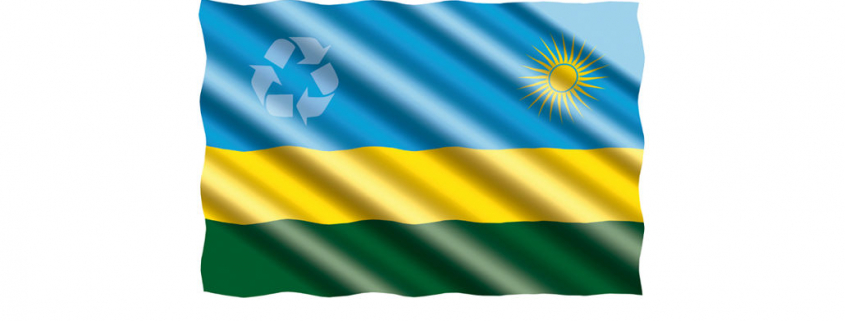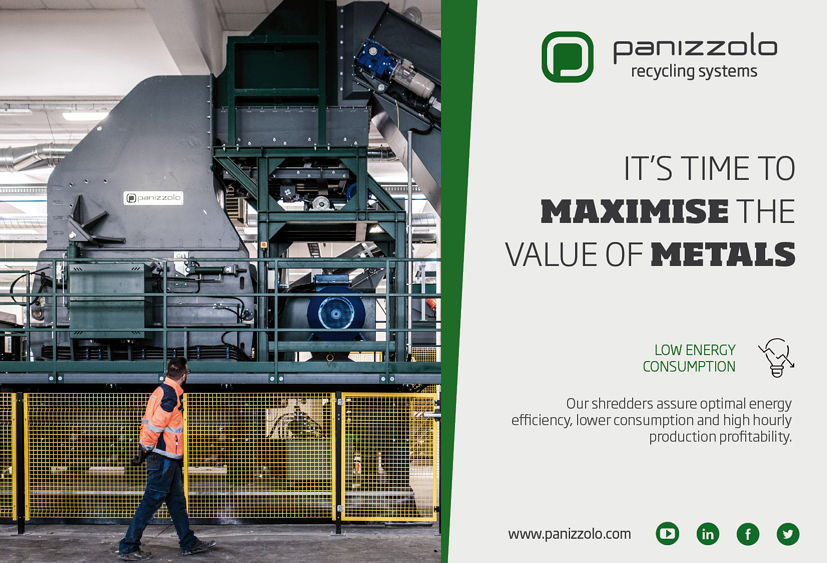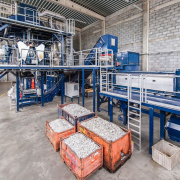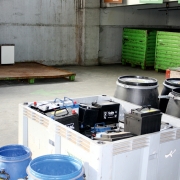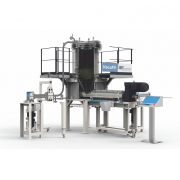Rwanda – Forerunner in E-Waste Recycling
“Rwanda has a bold vision to become a carbon-neutral and climate resilient economy by the middle of the century”, Rwanda’s National Fund for Environment prophesized in February 2022. Regarding circular economy or at least recycling, it will still be a long way to go.
There are no official data available on Rwanda’s total waste production. But the United Nation Procurement Division estimates “more than 100 tons of waste every day“ delivered to the landfill in Rwanda’s capital Kigali – the only facility in the nation dealing with collected solid waste and featuring a recycling rate hovering somewhere between two and 12 percent. A country report launched by the European Union acts on the assumption of 193,434 tons of waste per year disposed of in Kigali; a benchmark study in 2019 indicated approximately 232,870 tons MSW generated. According to the Water and Sanitation Corporation, the amount of waste at the landfill sites of Kigali increased between 2006 and 2015 from 141.38 tons to 495.76 tons annually. And a study by Anirudh Rajashekar et al. published by the London School of Economic and Political Science – emanating from approximately 800 tons per day – foresees an increasing total waste generation between 2019 and 2030 at 300,000 to 475,000 tons per year, with managed urban waste doubling to 325,000 tons and rural waste climbing from nearly zero to about 50,000 tons.
First steps taken
A 10-year climate plan running from 2021 to 2030 includes the planning and investing of 28 million US-Dollar in extraction and utilization of gas landfills for power generation. Further eight million US-Dollar will be transferred in the establishment of waste-to-energy plants. In cooperation with Luxemburg, a three-year project called “Waste to Resources” was launched in August 2021 to implement an integrated sustainable waste recycling, waste control and hazardous waste management system in Kigali and later on nationwide. And a new recycling project started in February 2022 by distributing garbage bags to the population to support pre-sorting. With an investment of about 3.9 million US-Dollar, the transaction is expected to convert 70 percent of organic waste into fertilizer. As an NISR’s Agricultural statistical survey indicates 55.7 percent of farmers using organic fertilizers, the EU report highlights the need of value-added strategies that transform organic waste into compost. This is as much necessary as the biggest share of municipal waste in Rwanda – 74 percent – comes from organics, mostly food waste and a quarter green waste.
First to ban plastic bags
Organics are not the only source of waste material problems: Already in 2004, ministerial instructions on the use and manufacturing of plastic bags with a thickness of 60 microns and below were adopted, although they showed little effect. However, in 2008, the country adopted prohibition of manufacturing, importation, use and sale of polythene bags and extended the law to ban all types of carrier/shopping plastic bags and plastics for wrapping successfully. In 2008 too, Ecoplastic, a plant dealing with recycling plastic bags, started and now denominates itself as one of Rwanda’s leading companies in plastic recycling and the production of new plastic products. Rwanda became one of the first countries in the world to ban plastic bags. A tough legislation provides penalties for individual dumping plastics and for illegal acting companies. Therefore, plastics in 2019 delivered only three percent of the collected and disposed waste at the Kigali landfill. The local waste management and recycling company Coped Rwanda allocated 80,000 US-Dollar to setting waste collection centers. And planned to put roughly two millions in projects of turning plastic bottles into construction materials, into new standardized bottles or into the production of fibers for clothes. The local KT Press online balances that Rwanda now has a robust plastic recycling industry “positioning the country as a regional hub for turning trash into treasure”. The drawback: From January until September 2021, Rwanda seized more than 11 million plastic bag smugglers.
First e-waste dismantling facility
Most e-waste in Africa comes from Australia, China, the EU, Japan, North America, South Korea, the US and Canada – waste that is predominately disposed through open dumping, burning and landfilling, the Encanced Integrated Framework criticized in July 2020. But not so in Rwanda. Already in 2008, Rwanda started policy discussions around how to manage e-waste and approved an e-waste policy in 2016. More than that, in 2020 Rwanda launched its first e-waste dismantling and recycling facility, scheduled for the sustainable collection as well as for the treatment of end of life solar products and waste batteries, and operated and managed by EnviroServe Rwanda Green Park; its stakeholders are the ministries of Environment as well as of Trade and Industry, the Rwanda Environment Management Authority, the Rwanda Utilities Regulatory Authority, the Rwanda Green Fund (FONERWA) and the Rwanda Standards Board.
Importations prohibited
According to the Encanced Integrated Framework, this state-of-the-art plant run by EnviroServe can process up to 10,000 metric tons of e-waste annually. Until 2020, the company treated more than 4,000 tons and created over 600 jobs, Olivier Mbera, country general manager of EnviroServe, was cited. But he had to confess that the e-waste collecting coverage is just 30 percent by institutions and less than 10 percent by homes. And that the e-waste resources – representing approximately 66 million US-Dollar – need to be recovered and selected from hazardous materials, he told CNN. Besides that, the material’s amount is expected to increase by 10,000 to 15,000 tons every year. The Rwanda government has already taken precautions: Together with its partner states Kenya, Uganda, Tanzania, Burundi and South Sudan it agreed unanimously to ban dumping of e-waste in the region especially by prohibiting the importation of cathode rays and standalone used computer monitors with effect from July 1, 2022.
Fiber from banana stalks
There is some metal recyclable at least in Rwanda’s municipal solid waste: The EU country report reveals only 774 tons per year. But an article in The EastAfrican from November 2021 cites Richard Munang, UNEP’s regional climate change co-ordinator for Africa. He declared that “the extraction of precious metals from dysfunctional e-waste in Africa is valued to be about 10 billion US-Dollar”. Moreover, he underlined that – for example in Rwanda – up to 66 million US-Dollar worth of precious metals are recoverable from formal recycling. And “this is just the benefit from one plant.”
Little is known of paper recycling. The before mentioned EU report speaks of five percent of the collected and disposed waste summing up to more than 10,400 tons per year. There is one paper treatment and recycling plant, Trust Industries, founded in 2009, that transforms paper waste into toilet paper. Comparable to plastic recyclers, the company receives materials from small industries, which are then separated, cleaned and combined with virgin materials to create new products for the market. In contrast, the start-up UMUTI uses fiber from left-over banana stalks and plantain trunks to produce paper as well as paper or paper packaging bags. In the textile sector only the UZURI K&Y enterprise is known, in its own words “preserving our environment through recycling of wastes” to tackle the United Nations‘ goal No 13 of climate action.
Business model proven effective
All in all, the Sage Journals backed by the International Solid Waste Association certified Kigali a “relatively high performance of waste collection” by comparison, although even this city as all other cities in East Africa needs to prioritize controlled waste treatment and disposal as well as increased quantity and the quality of recycling. Anyway: Rwanda declares and runs a National Environment and Climate Change Policy. Not for nothing, Rwanda 2016 belonged to the founding countries of the African Cicular EconomyAlliance (ACEA), built to transform Africa to a circular economy that delivers economic growth, jobs, and positive environmental outcomes. So obviously waste management has a key function in Rwanda’s national policy. Not only because the designated mitigation measures in the waste sector constitute 14 percent of the potential for GHG emissions reduction, resulting in 54 percent from landfill gas utilization, 34 percent from waste-to-energy, and nine percent from aerobic composting. But also because – as the Global Green Growth Institute expressed it – “the business model of waste management has proven effective in treating waste as a valuable resource”. So the “Vision 2050”, edited by the Ministry of Finance and Economic Planning, prophesizes: “Through smart solid waste management, solid waste shall be collected, transported, treated and safely disposed. Industries will have regulated semi-centralized landfills or incinerators to treat liquid and solid waste respectively.”
Lease fee to be reinvested
This will not function without private investment. Both sides seem to be disposed. Clare Akamanzsi, CEO of the Rwanda Development Board, is quoted: “The government of Rwanda is committed to working with the private sector to ensure sustainable development, which is critical for present and future generations.” For implementation, the Rwanda Green Fund, FONERWA, was cross-sectoral designed to – amongst others – mobilize financial and technical resources, explore circular economy investment opportunities and support private as well as civil society initiatives aligned with the circular economy.
The system works. When the Rwanda E-Waste Dismantling and Recycling Facility opened, the operator EnviroServe Rwanda Green Park developed e-waste collection points and centers, introduced new machinery and equipment and payed the Government of Rwanda a total lease fee over the 10-year period “that will more than cover the initial investment in the project” (in the amount of 1.5 million US-Dollar). The lease fee paid to the Government of Rwanda was said to be reinvested into environmental and green growth initiatives through FONERWA.
(Published in GLOBAL RECYCLING Magazine 2/2022, Page 27, Photo: jorono / pixabay.com)

